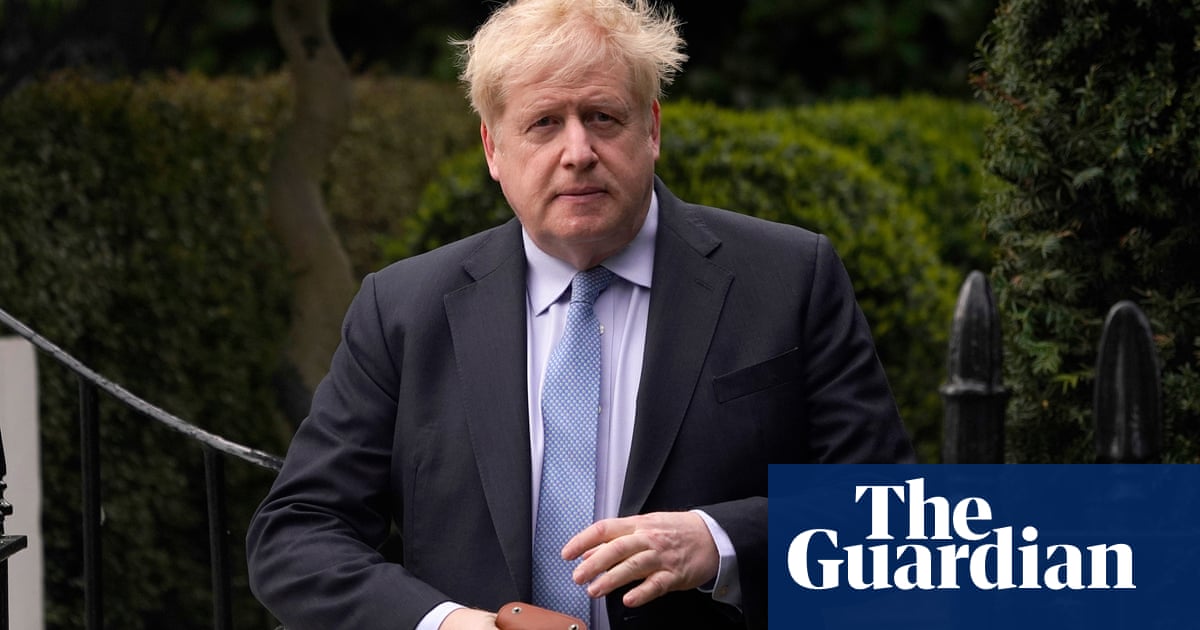
oris Johnson is ill and in hospital. That must be wretched for him and his family. We can only wish him well and a speedy recovery. His infection by Covid-19 indicates the extraordinary contagiousness of this disease and possibly its widespread prevalence. Of the first there is now no doubt. Of the second, without testing, there is no clue.
That a prime minister is ill is a serious matter. Yesterday the Queen performed her duty as the nation’s figurehead with remarkable assurance. In clear, undramatic language, she spoke free of cliche and with sincerity. Her few words of hope shone through the darkening forest of the media coverage of these events. It was the first time I smiled at the television in a month.
A prime minister too is a figurehead, but has a harder task. Johnson is the nation’s elected leader at a time of crisis, with millions reliant on his decisiveness, judgment and public demeanour. At least one cabinet minister maintains that these qualities can be deployed from his hospital bed. Sometime soon, that idea will become absurd. It presents the government machine as a driverless car which, in the style of Yes Minister, will perform equally well, if not better, with no politician at the wheel. Leave the experts and “the science” to get on with it, and all will be well.
Rumours abound that since the start of the coronavirus outbreak, this machine has been ramshackle. The nation’s health services, so proudly championed for so long, were unprepared both centrally and locally. This was despite trial runs and forewarning. It does not matter who was to blame. The system malfunctioned. Then in mid-stream the cabinet reversed its policy from mitigation to suppression. Ministers ran in and out of Downing Street press conferences, making pledges, setting targets and micro-managing social distancing. Little of what they said carried full conviction.
Suddenly, leadership mattered. Who was in charge? Johnson’s initial glib Churchill imitations (the Queen wisely chose Vera Lynn) had to change, and they did. As Johnson fell ill, news conferences were conducted by the dull, steady Dominic Raab or the flashy, impetuous Matt Hancock. Experts came and went, spurring debate as to what side they were on.
Government lurched into lecture mode. It began telling people not to work, how to shop, and where and with whom to walk. These are not the normal actions of government in a free society. They are painful and massively intrusive on daily life. They are also being taken by ministers and officials amid extremes of risk and uncertainty. The instinct under pressure was not to welcome argument or accountability. It was to demand obedience.
That is not enough. At the very least the use of such powers requires the most explicit public leadership. Bluntly, they need the qualities of communication for which Johnson was supposedly elected. They also need ready scrutiny and challenge, which is currently being supplied only by the media. Parliament has abandoned what should be its primary role: holding executive decision to account. The new Labour leader, Sir Keir Starmer, was therefore right to refuse Johnson automatic support.
The cabinet cannot operate with half its members in varying degrees of isolation. The wonders of Skype and Zoom cannot replicate the cut and thrust, the body language, the public and private exchanges of a truly deliberative forum. There has to be a conductor knowing when and how to bring the instruments of government into play. There has to be a boss.
Past experience of sick leaders is not happy. Churchill’s doctor, Lord Moran, and his wartime aide, Lord Alanbrooke, related the impact his clinical depressions had on war cabinet morale. The same message came through the 2008 study of sickness in power by the former foreign secretary, David Owen. He traced the hubristic impact that power can have on those who wield it, not least a refusal to believe they might be ill.
Democracies vote for leaders, not anarchists. Every leader’s style is different. Attlee could hardly have been less like Churchill, Heath less like Thatcher, Brown less like Blair. All depended on their close relations in Downing Street with advisers and cabinet colleagues – and suffered when these broke down. Johnson decided from the start that he would not harbour critics in Downing Street, preferring the second rate to the second thought. He made his own indispensability a feature of his rule. In normal times, that is unwise. In a crisis it is stupid.
Britain’s present predicament is yielding lessons aplenty. One is that the formal machinery of government matters. Johnson’s response to coronavirus has been to nationalise, standardise, command and control everything. In his lockdown, one rule must fit all. Such is Britain’s centralist constitution. But if so, it must depend on one thing: efficient and accountable leadership. At present the prime minister is clearly unfit. A public and functioning alternative must surely be in place.
• Simon Jenkins is a Guardian columnist












